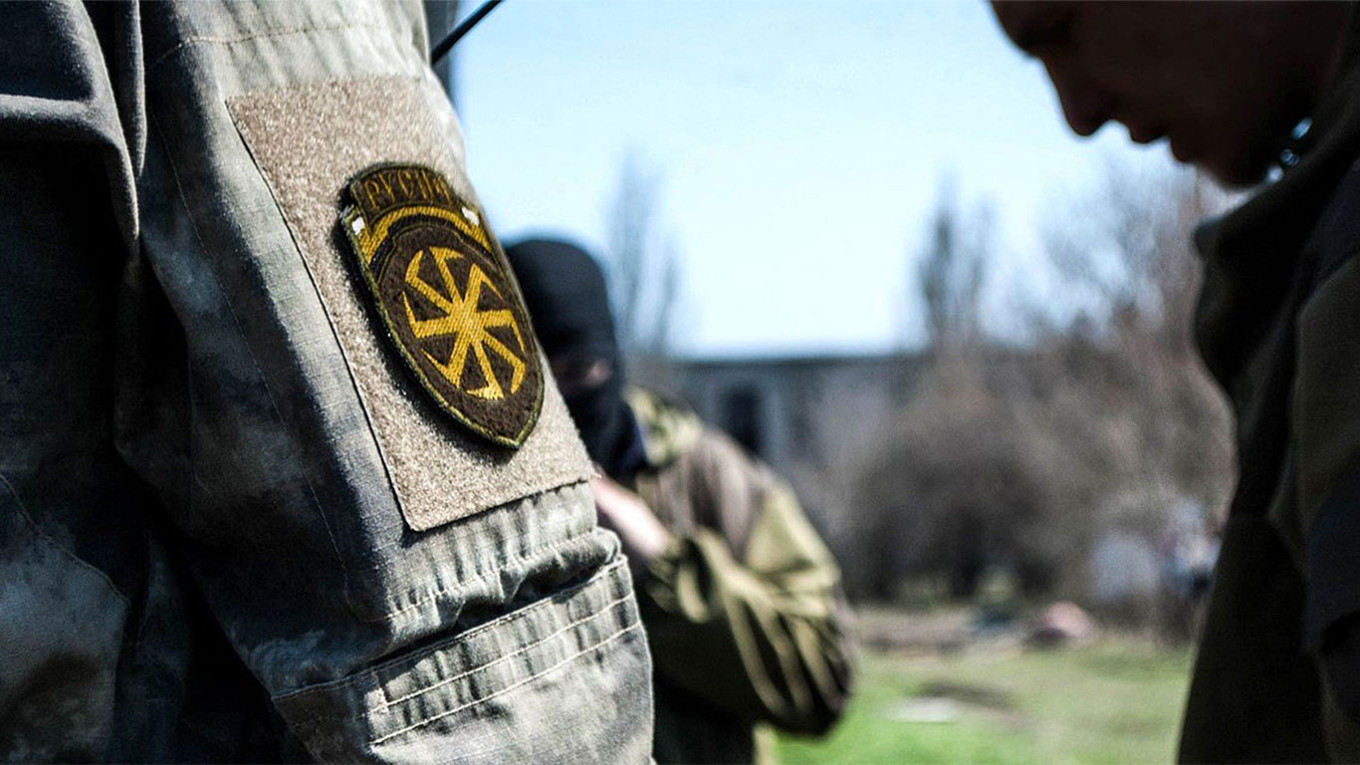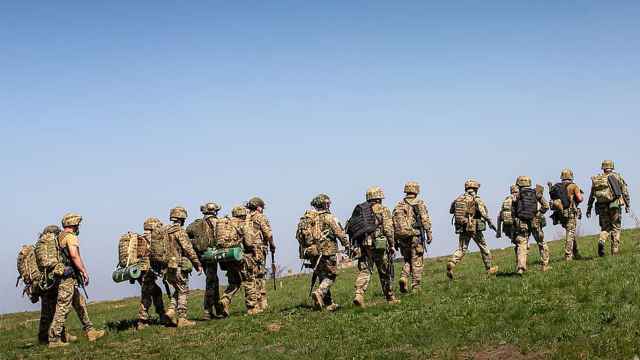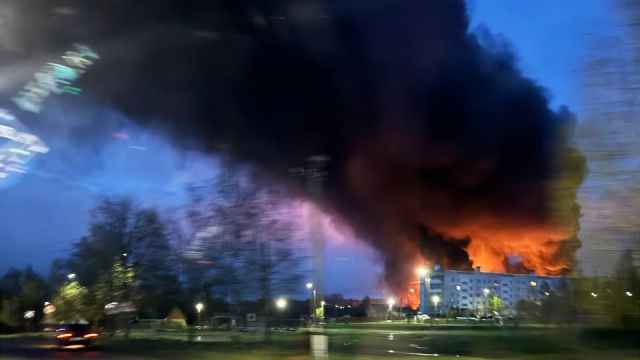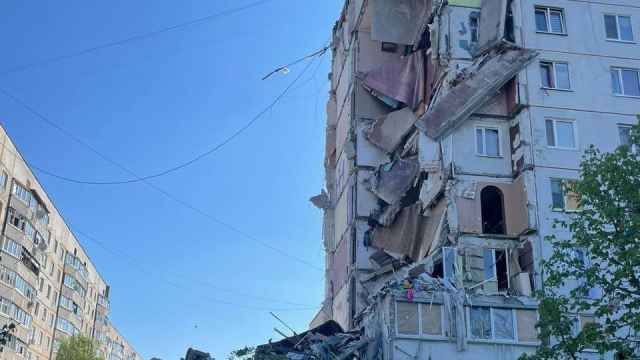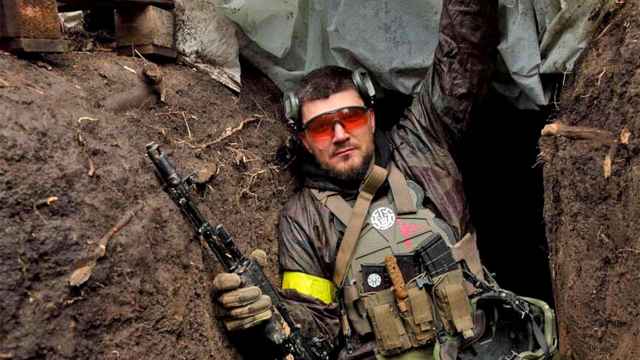The Russian Volunteer Corps (RVC), a Russian far-right unit fighting on the side of Ukraine, hit the headlines earlier this month after carrying out an incursion across the Russian border.
The attack on Russia’s Bryansk region, in which two people were allegedly killed, was designed to encourage Russian citizens to commit anti-state violence and expose the weakness of the country’s borders, according to RVC leader Denis Kapustin.
But the stunt also highlighted the conflict that for years has divided Russia’s far-right movement over the war in Ukraine: While many Russian ultranationalists support the invasion, a minority have taken up arms against the Kremlin.
How did Russian nationalists end up on both sides of the conflict? And what impact have they had on the course of the fighting in Ukraine?
Who are the Russian nationalists fighting for Ukraine?
Since fighting first began in eastern Ukraine in 2014, hundreds of Russians with far-right beliefs have sided with Kyiv. They are mostly members of Russia’s neo-Nazi subculture who see contemporary Russia as a corrupt, multi-national state — and blame President Vladimir Putin for disregarding the interests of ethnic Russians.
Some fled Russia in the early 2000s, escaping prosecution for hate crimes or for their political activities. And many of them moved to Ukraine, which they saw as a Slavic country that was more ethnically homogenous than Russia.
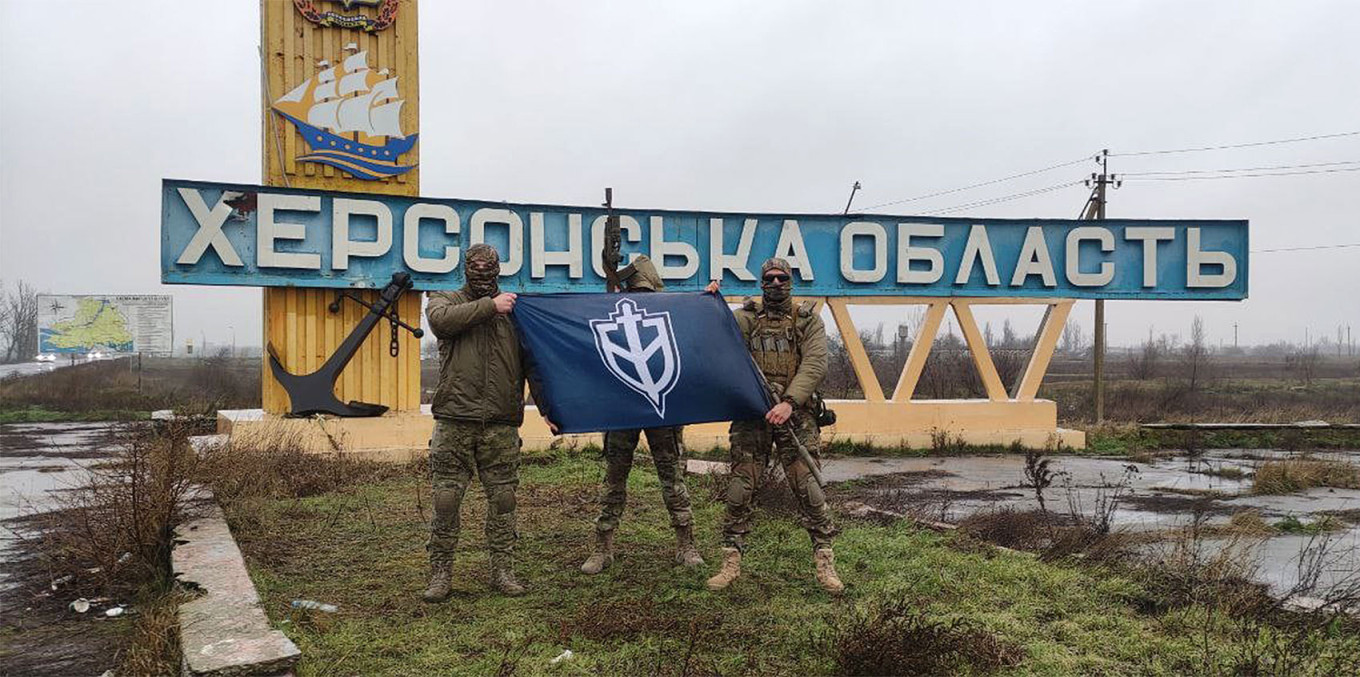
“They started hating the Russian state and thought that Ukraine, where immigration was less intense, was the ideal place for their activity,” said Nikolai Mitrokhin, a sociologist at the University of Bremen who specializes in Russian nationalism.
Many jumped at the opportunity to join Ukrainian far-right military units, including the Azov Regiment, in 2014. Some of them opposed the Kremlin for fueling a “fratricidal war,” while others were just looking for the opportunity to take part in military action.
“You suddenly had the chance to take up real weapons, defend people and receive in return respect and social capital,” said Vyacheslav Likhachev, a researcher of right-wing radicalism.
“That's a completely different feeling than running around in the night, drinking beer and beating up people with a non-Slavic appearance.”
Have pro-Russian far-right groups also been fighting for the Kremlin?
Yes. In fact, the number of Russian far-right radicals fighting alongside Ukrainian forces pales in comparison with that of those who have fought on the Kremlin’s side since 2014.
The latter embrace an imperial brand of Russian nationalism that is focused on territory rather than ethnicity: they seek to restore Russia’s “historical borders” and support Putin’s attempt to establish control over Ukraine, which they see as a historical Russian land.
Thousands of Russian nationalist and far-right volunteers joined the Russia-backed armed rebellion in eastern Ukraine when it began in 2014.
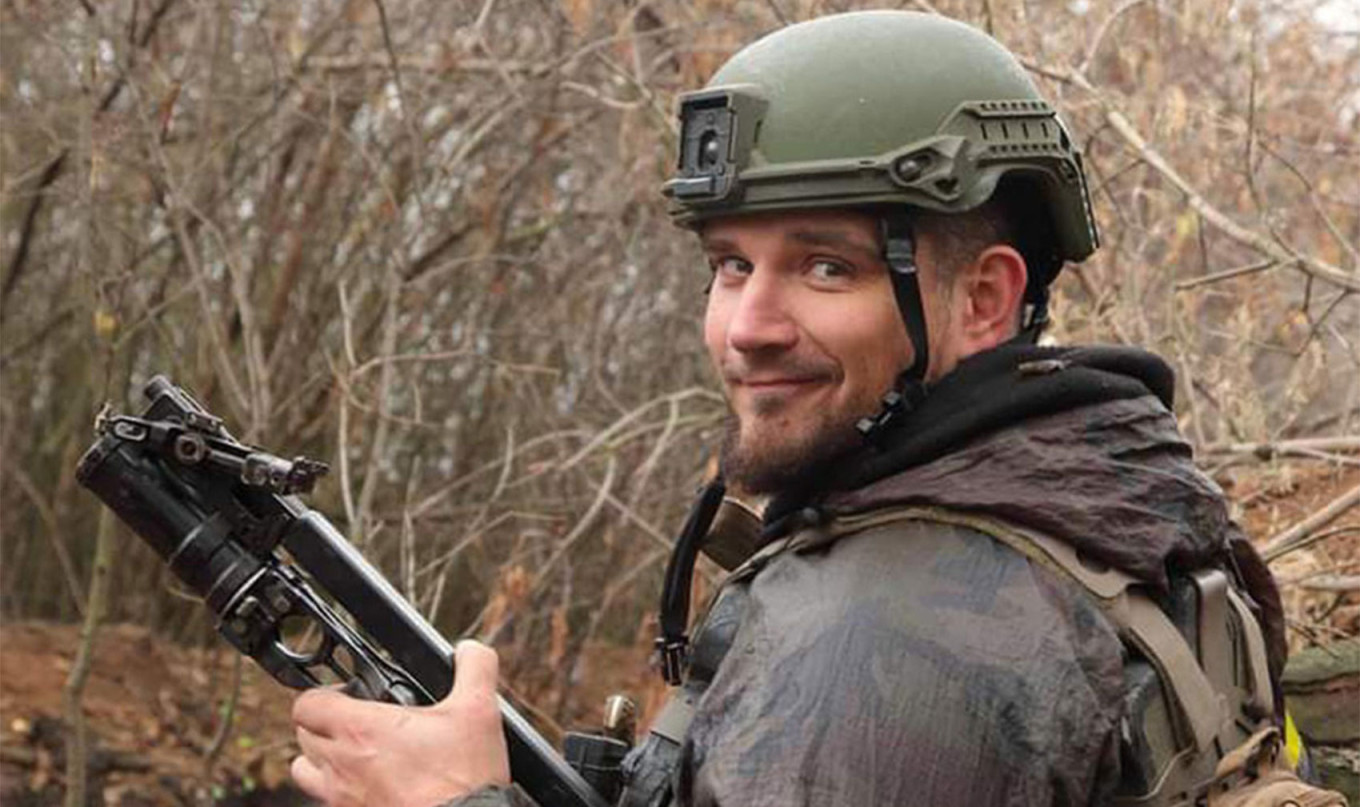
According to experts, these volunteers were supported by Russia’s Federal Security Service (FSB), which used them as proxies as the Kremlin didn’t want to admit its direct involvement.
“They had connections with the FSB and parts of the military to receive instructions, weapons and ammunition,” expert Mitrokhin told The Moscow Times.
When the active phase of the fighting in eastern Ukraine ended, nationalist militias were gradually marginalized and their leaders replaced with figures more loyal to the Kremlin.
What is the pro-Ukraine Russian Volunteer Corps and what are its goals?
Denis Kapustin, a Moscow-born neo-Nazi, founded the RVC last year. According to its manifesto, RVC aims to overthrow Putin and create an ethnic Russian state. Its members want Russia to abandon its imperial ambitions and focus on the well-being of ethnic Russians.
“With what force will you keep your ‘empire’ from blowing up? Why do you need Crimea… Why do you need land if there is no one to live on it?” asks the RVC manifesto.
According to experts, support for RVC within Russia is insignificant, and their incursion into the Bryansk region is only likely to reinforce the Kremlin’s propaganda narrative that claims Ukraine is run by neo-Nazis who threaten Russia’s territorial integrity.
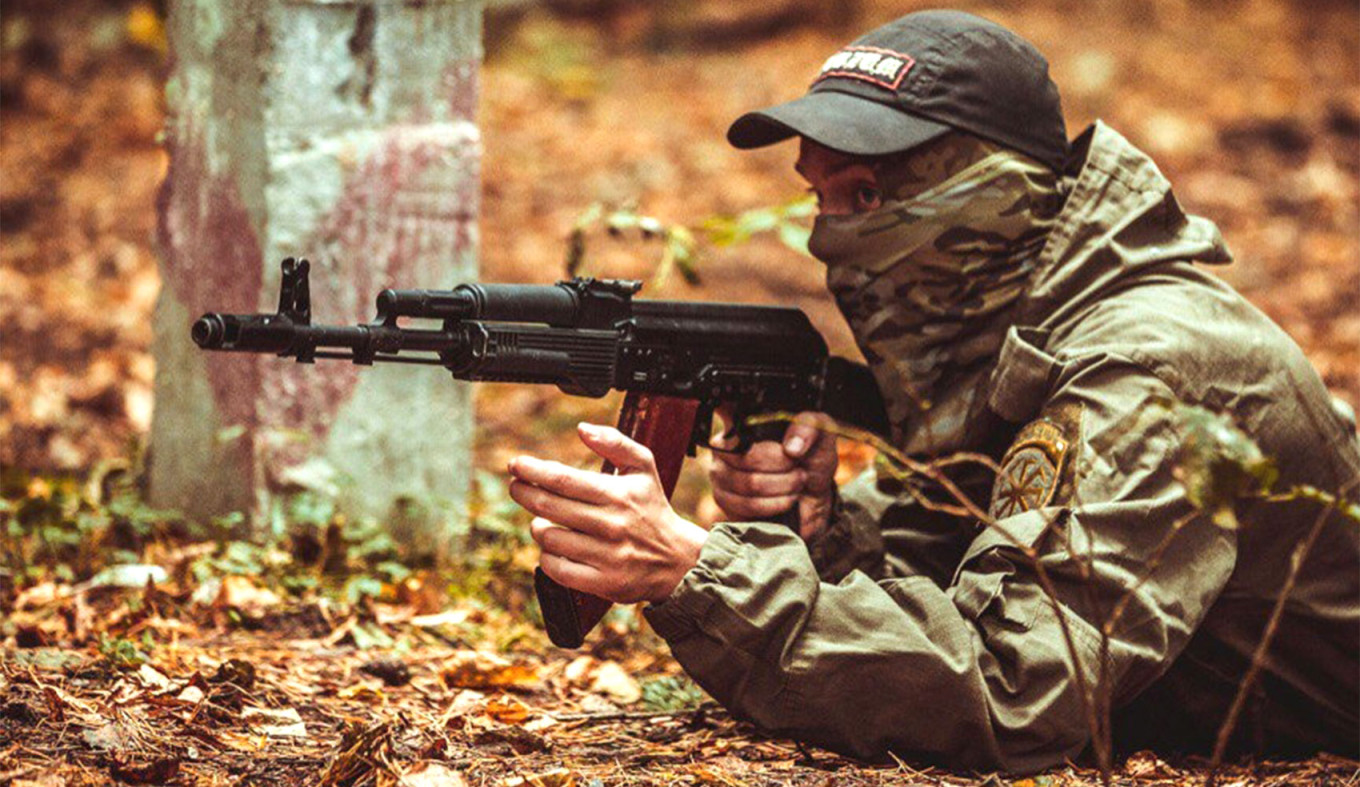
Still, the stunt was successful in giving RVC a publicity boost — which could attract more recruits.
“There is no such thing as bad publicity,” said Alexander Verkhovsky, director of Russia’s SOVA Center for Information and Analysis that monitors ultra-nationalist activities.
“The group needs to grow, get supporters and show some achievements,” he told The Moscow Times.
What far-right militias are fighting for Russia in Ukraine?
Several Russian far-right groups have been fighting in Ukraine as a part of volunteer units in Russia’s Armed Forces since last year’s full-scale invasion.
One of the most well-known is the Russian Imperial Legion, a far-right group from St. Petersburg. Its political arm, the Russian Imperial Movement (RID), which holds anti-immigration and anti-Semitic views, has been running training camps for volunteers willing to fight in Ukraine.
RID has been designated as a terrorist organization by the U.S. and Canada and the U.S. sanctioned leading members last year.
“We of course support the liquidation of the separatist entity that goes by the name of Ukraine,” RID founder Denis Gariyev said on the day of the Russian invasion.
Perhaps even more radical is the Sabotage Assault Reconnaissance Group Rusich. Members of the group, which is led by self-proclaimed neo-Nazi Alexei Milchakov, regularly display far-right symbols and have been accused of war crimes in Ukraine.
Another ultranationalist group present in Ukraine, Espanola, was set up by far-right Russian football hooligans. Its leader Stanislav Orlov has said the group was active in recent Russian attacks around the Ukrainian city of Vuhledar, including taking part in the operation of air defense systems and drones.
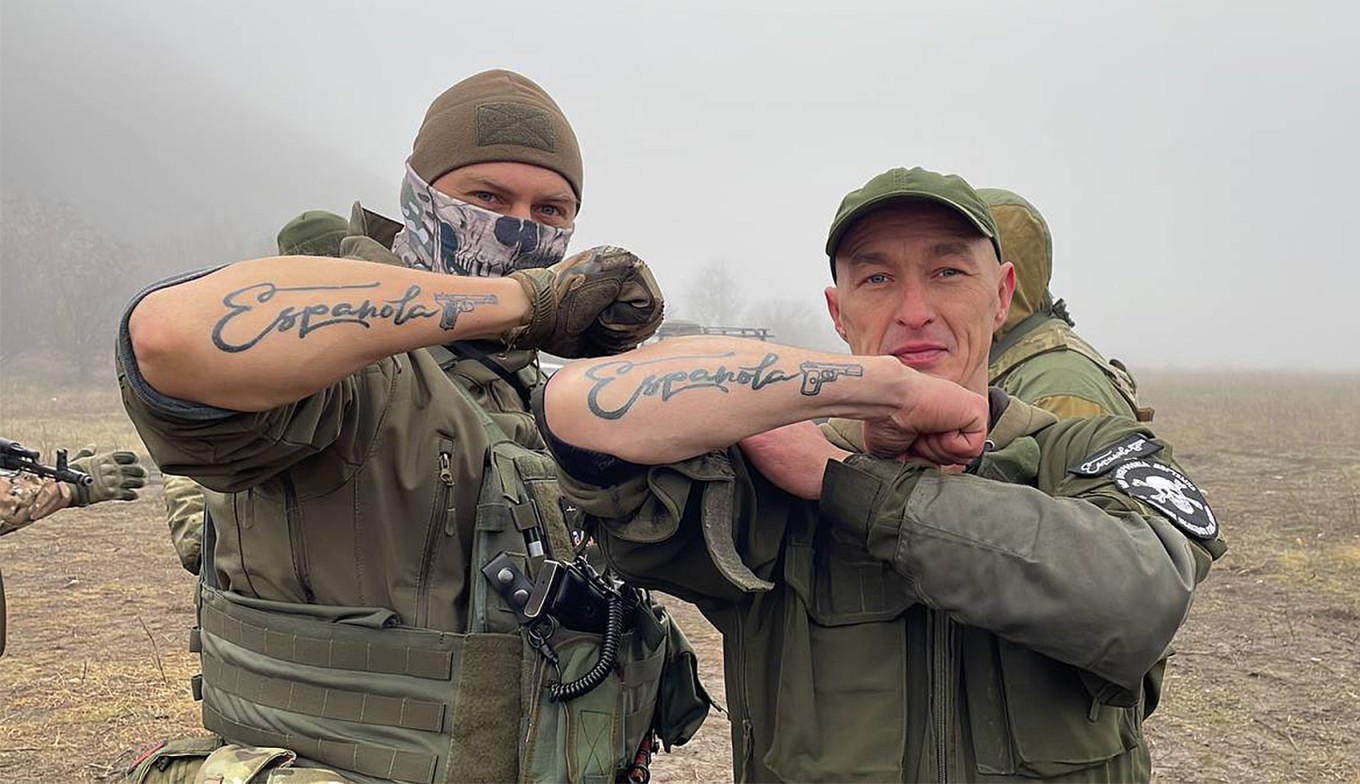
Among Espanola’s most notorious members is martial arts fighter Mikhail Turkanov, known for his swastika tattoos, who was apparently awarded the state Order of Courage last month.
Does the Kremlin acknowledge support from far-right groups?
The Russian authorities have refrained from acknowledging — let alone condemning — the presence of far-right groups in the Russian army.
On the contrary, there are multiple reports of far-right activists like Turkanov receiving military awards.
“We should not declare that these people support fascists without any proof. We have no reason for doing that,” Andrey Kartapolov, the chairman of the Russian parliament’s Defense Committee, said in an interview earlier this month when asked about Rusich.
But for many experts, the Kremlin’s tolerance for such groups is not a surprise: extreme nationalist ideology and imperialist rhetoric has been present in Russia’s official discourse for years — and has been even more visible among top officials since the invasion of Ukraine.
And any acknowledgement of far-right activists fighting for Russia would undermine one of the Kremlin’s main justifications for invasion: the allegation that Ukraine is ruled by Nazis.
“They [far-right groups] are encouraged by the genocidal rhetoric of Kremlin propagandists… [and] Putin himself is voicing this ideology,” said Likhachev.
“The whole of Russia has moved into that direction.”
A Message from The Moscow Times:
Dear readers,
We are facing unprecedented challenges. Russia's Prosecutor General's Office has designated The Moscow Times as an "undesirable" organization, criminalizing our work and putting our staff at risk of prosecution. This follows our earlier unjust labeling as a "foreign agent."
These actions are direct attempts to silence independent journalism in Russia. The authorities claim our work "discredits the decisions of the Russian leadership." We see things differently: we strive to provide accurate, unbiased reporting on Russia.
We, the journalists of The Moscow Times, refuse to be silenced. But to continue our work, we need your help.
Your support, no matter how small, makes a world of difference. If you can, please support us monthly starting from just $2. It's quick to set up, and every contribution makes a significant impact.
By supporting The Moscow Times, you're defending open, independent journalism in the face of repression. Thank you for standing with us.
Remind me later.



